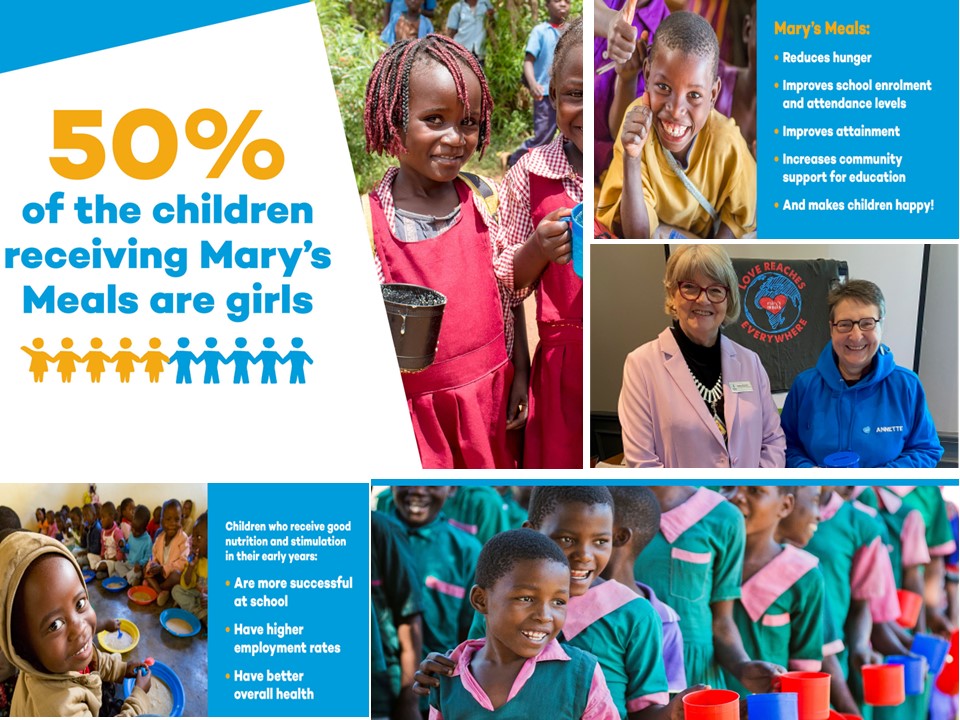Annette Davies of SI Medway & Maidstone spoke about Mary’s Meals at the March Regional meeting. Hunger remains the number one health risk in the world today. More than 67 million primary school-age children are out of school around the world from the world’s poorest communities are fed a daily meal at school. This attracts chronically hungry children into the classroom where they can get an education. This gives the children, and their communities hope of a better future.
Mary’s Meals started by feeding 200 children in Malawi. It has now spread internationally. 2.5 million children are now being fed in 18 countries.
The charity works with local communities. They seek, and gain, community ownership for the feeding programmes. A kitchen is built and relatives, usually mothers, cook the meals. The school feeding programmes are owned by the community. They are run by local volunteers, with Mary’s Meals providing the food. 
The daily meal gives children incentive to go to school and the energy to learn and play. When Mary’s Meals starts at a school our research shows: –
- hunger is reduced
- there is improved school enrolment and attendance levels,
- improved attainment,
- increased community support for education,
- and children are happier!
50% of the recipients are girls, which encourages girls education and helps to reduce pregnancy rates. It costs £19.15 per annum to feed one child for a school year.
A new generation, once fed by Mary’s Meals, is finding its voice. We call them ‘Generation Hope’. These young people have completed their education. They are going on to become doctors, teachers and even professional athletes.
Soroptimists can help by fund raising and volunteering to spread the word about the charity. Information films about Mary’s Meals are available on YouTube, such as https://www.youtube.com/watch?v=EowuHMxIrxk

